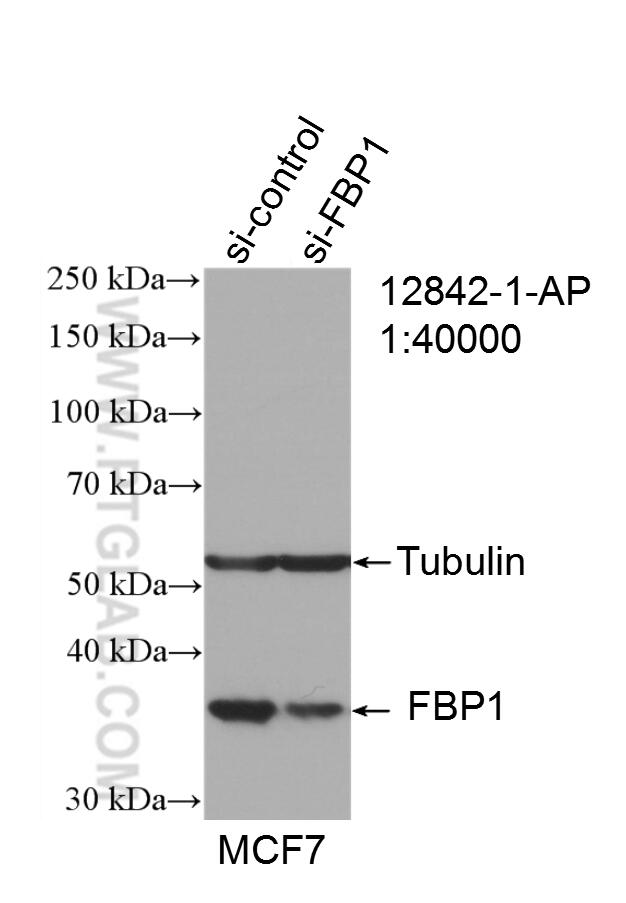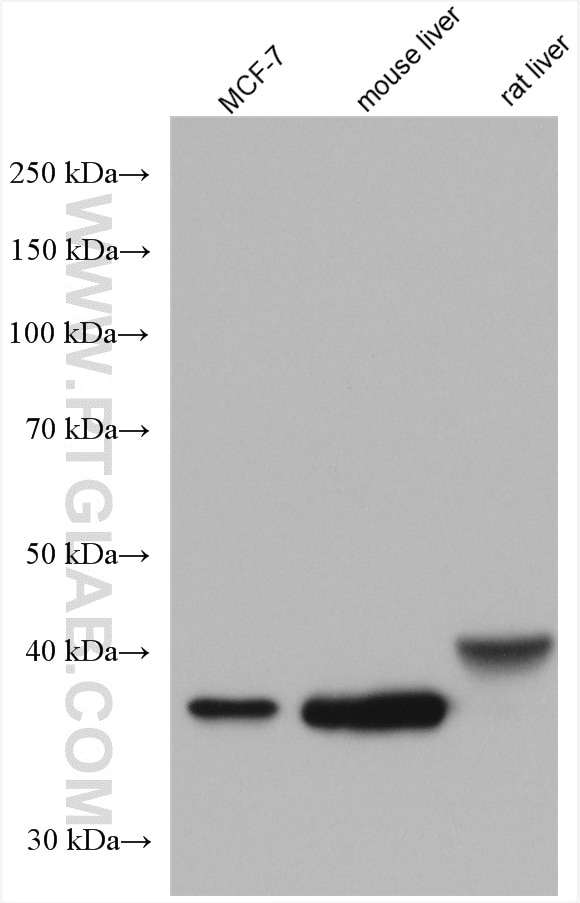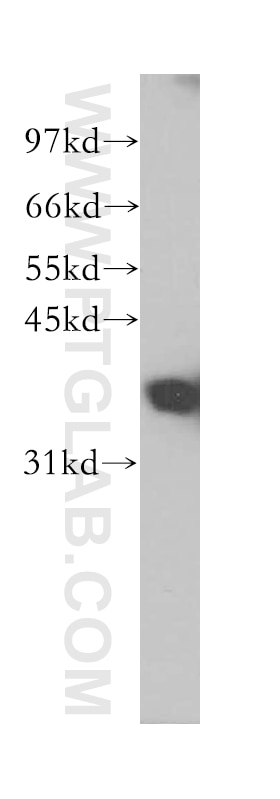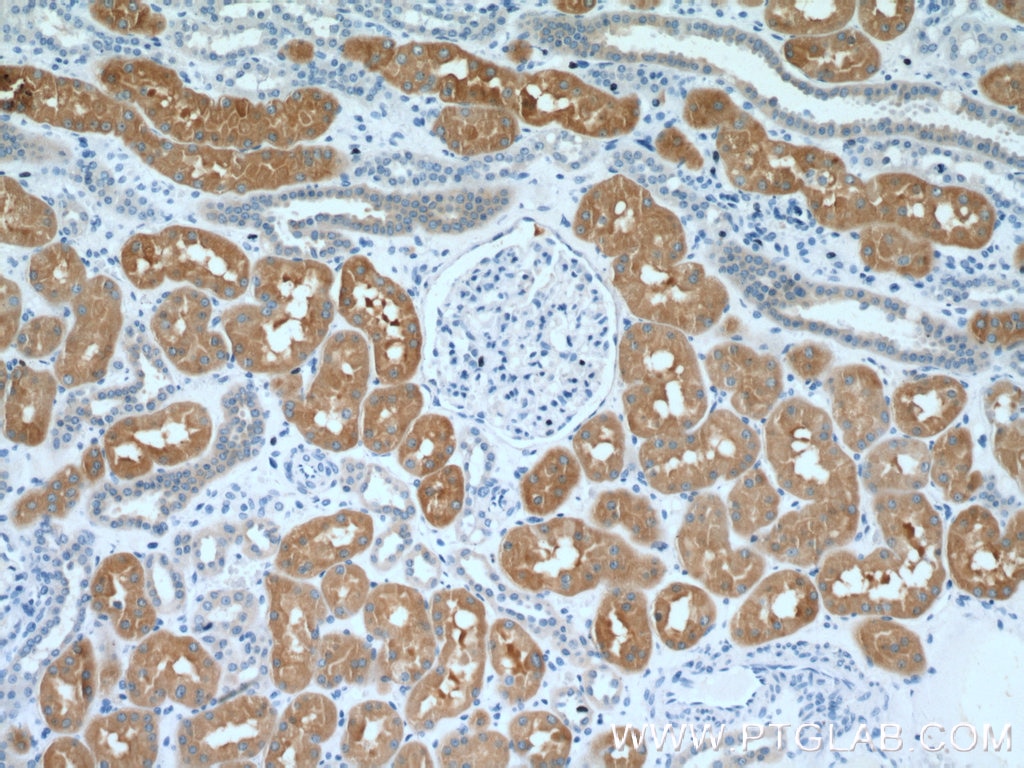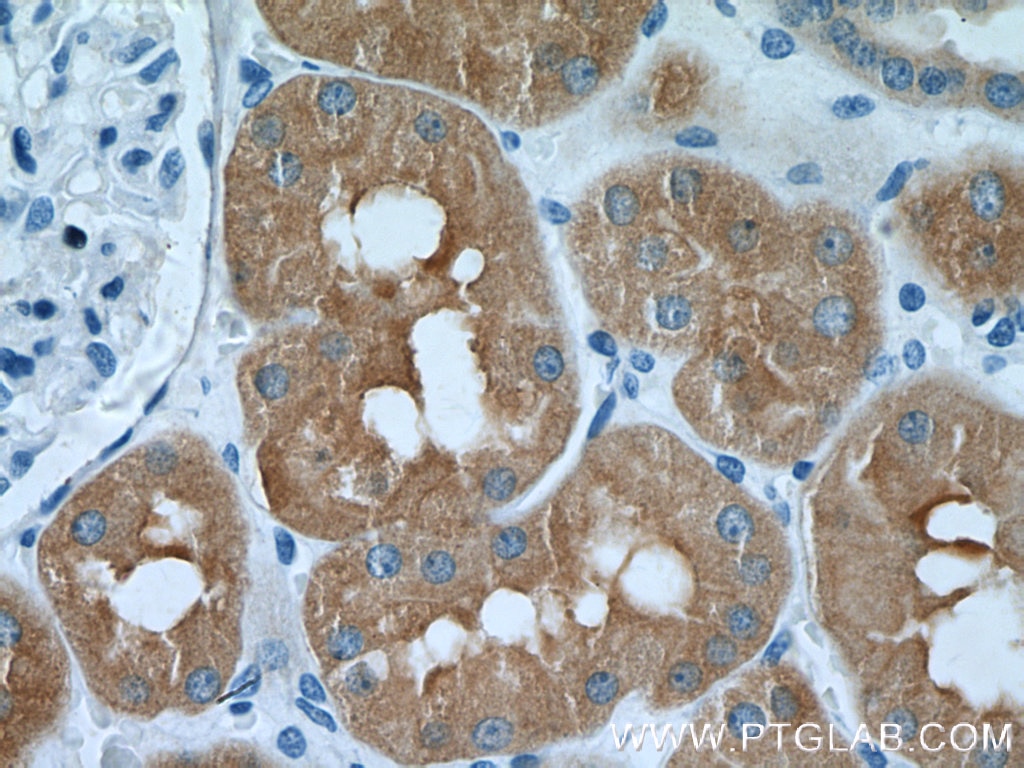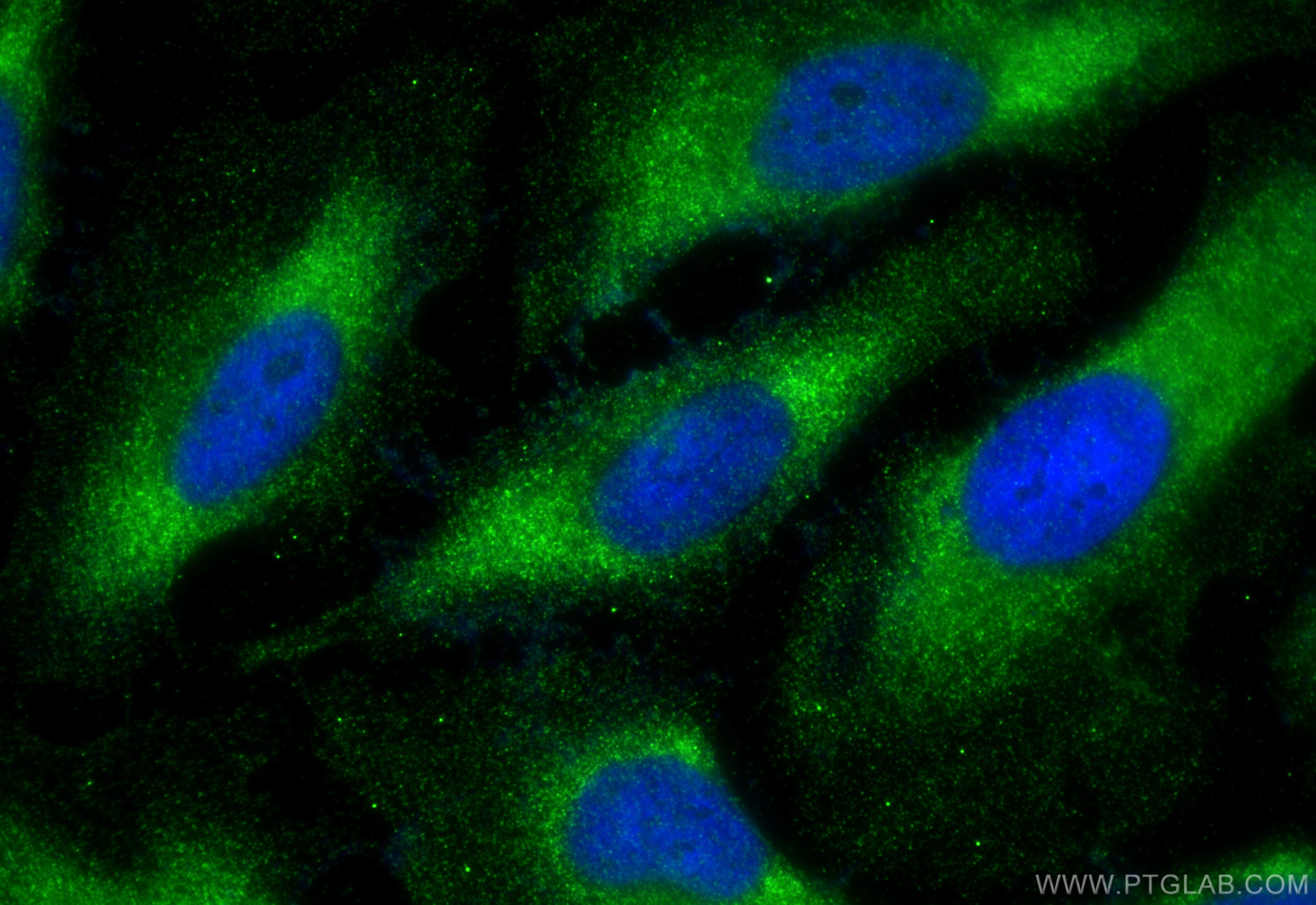- Featured Product
- KD/KO Validated
FBP1 Polyklonaler Antikörper
FBP1 Polyklonal Antikörper für WB, IHC, IF/ICC, ELISA
Wirt / Isotyp
Kaninchen / IgG
Getestete Reaktivität
human, Maus, Ratte und mehr (1)
Anwendung
WB, IHC, IF/ICC, IP, CoIP, ELISA
Konjugation
Unkonjugiert
Kat-Nr. : 12842-1-AP
Synonyme
Geprüfte Anwendungen
| Erfolgreiche Detektion in WB | MCF-7-Zellen, humanes Lebergewebe, Mauslebergewebe, Rattenlebergewebe |
| Erfolgreiche Detektion in IHC | humanes Nierengewebe Hinweis: Antigendemaskierung mit TE-Puffer pH 9,0 empfohlen. (*) Wahlweise kann die Antigendemaskierung auch mit Citratpuffer pH 6,0 erfolgen. |
| Erfolgreiche Detektion in IF/ICC | HeLa-Zellen |
Empfohlene Verdünnung
| Anwendung | Verdünnung |
|---|---|
| Western Blot (WB) | WB : 1:2000-1:10000 |
| Immunhistochemie (IHC) | IHC : 1:200-1:800 |
| Immunfluoreszenz (IF)/ICC | IF/ICC : 1:200-1:800 |
| It is recommended that this reagent should be titrated in each testing system to obtain optimal results. | |
| Sample-dependent, check data in validation data gallery | |
Veröffentlichte Anwendungen
| KD/KO | See 2 publications below |
| WB | See 20 publications below |
| IHC | See 4 publications below |
| IF | See 2 publications below |
| IP | See 2 publications below |
| CoIP | See 1 publications below |
Produktinformation
12842-1-AP bindet in WB, IHC, IF/ICC, IP, CoIP, ELISA FBP1 und zeigt Reaktivität mit human, Maus, Ratten
| Getestete Reaktivität | human, Maus, Ratte |
| In Publikationen genannte Reaktivität | human, Hausschwein, Maus |
| Wirt / Isotyp | Kaninchen / IgG |
| Klonalität | Polyklonal |
| Typ | Antikörper |
| Immunogen | FBP1 fusion protein Ag3837 |
| Vollständiger Name | fructose-1,6-bisphosphatase 1 |
| Berechnetes Molekulargewicht | 338 aa, 37 kDa |
| Beobachtetes Molekulargewicht | 37-40 kDa |
| GenBank-Zugangsnummer | BC012927 |
| Gene symbol | FBP1 |
| Gene ID (NCBI) | 2203 |
| Konjugation | Unkonjugiert |
| Form | Liquid |
| Reinigungsmethode | Antigen-Affinitätsreinigung |
| Lagerungspuffer | PBS with 0.02% sodium azide and 50% glycerol |
| Lagerungsbedingungen | Bei -20°C lagern. Nach dem Versand ein Jahr lang stabil Aliquotieren ist bei -20oC Lagerung nicht notwendig. 20ul Größen enthalten 0,1% BSA. |
Hintergrundinformationen
FBP1 (Fructose-1,6-bisphosphatase 1) is also named as FBP and belongs to the FBPase class 1 family. It catalyzes the hydrolysis of fructose-1,6 bisphosphate to fructose-6-phosphate and inorganic phosphate. This reaction is an important regulatory site of gluconeogenesis. Defects in FBP1 are the cause of fructose-1,6-bisphosphatase deficiency (FBPD) (PMID:12126934).
Protokolle
| PRODUKTSPEZIFISCHE PROTOKOLLE | |
|---|---|
| WB protocol for FBP1 antibody 12842-1-AP | Protokoll herunterladen |
| IHC protocol for FBP1 antibody 12842-1-AP | Protokoll herunterladenl |
| IF protocol for FBP1 antibody 12842-1-AP | Protokoll herunterladen |
| STANDARD-PROTOKOLLE | |
|---|---|
| Klicken Sie hier, um unsere Standardprotokolle anzuzeigen |
Publikationen
| Species | Application | Title |
|---|---|---|
J Med Chem Discovery of N-Arylsulfonyl-Indole-2-Carboxamide Derivatives as Potent, Selective, and Orally Bioavailable Fructose-1,6-Bisphosphatase Inhibitors-Design, Synthesis, In Vivo Glucose Lowering Effects, and X-ray Crystal Complex Analysis. | ||
Acta Physiol (Oxf) The Ancient Drug Salicylate Indirectly Targets Fructose-1,6-Bisphosphatase to Suppress Liver Glucose Production in Diet-Induced Obese Mice | ||
J Biol Chem Patient-derived organotypic tissue cultures as a platform to evaluate metabolic reprogramming in breast cancer patients | ||
Am J Cancer Res HSF2 regulates aerobic glycolysis by suppression of FBP1 in hepatocellular carcinoma. | ||
J Proteome Res Measurement of Organ-Specific and Acute-Phase Blood Protein Levels in Early Lyme Disease. | ||
Sci Rep Novel candidate factors predicting the effect of S-1 adjuvant chemotherapy of pancreatic cancer. |
